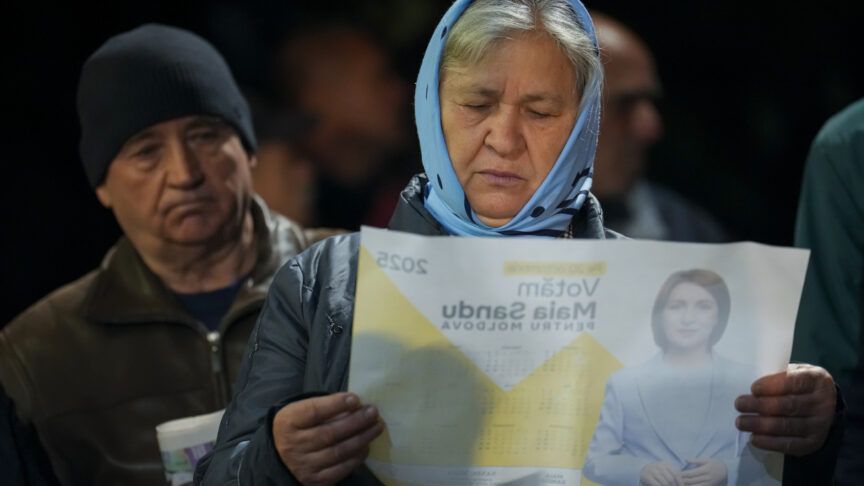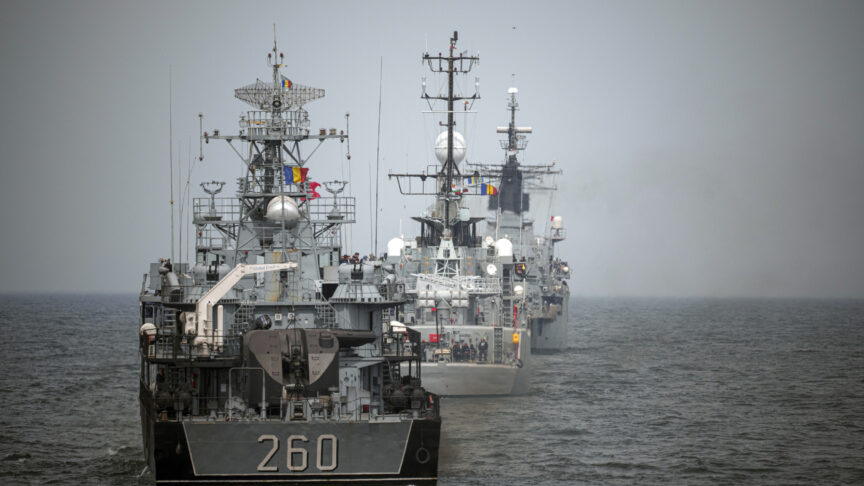Familiarity breeds contempt: Why Russia makes mistakes on the world stage
For all the accepted wisdom to the contrary, Russia is largely failing to achieve its core foreign policy objectives
In the last few years, barely a week has passed without announcements of some new assertive Russian foreign policy action that scream ‘Russia is back’. Stories and convincing details abound of interference in American and European politics, whether through cyber, media, or party finance operations. Victory in Syria. Assertive claims to the Arctic. Talk of Russian mercenaries in Syria, Central African Republic, Chad, and possibly Venezuela. All these events tell the story of an ever more globally relevant and a more influential Russia. This trend is hard to miss
However, an equally important trend is usually overlooked: that of a significant Russian power drain. For each foreign policy salvo on the global stage, there is a setback or a failure closer to home. For each new geopolitical friend the country gains through skilled diplomacy or raw power projection, it also loses one through phenomenally clumsy diplomacy or sheer inability to impose its will.
So the global foreign policy literati may look on in amazement at the first ever visit to Moscow by a Saudi king, or at a ‘yo-bro’ high-five between Vladimir Putin and Mohammed Bin Salman. But Russia’s stream of setbacks, and outright failures, fails to earn the same number of likes, retweets, and shares. But it should not be missed. For Russia is gaining some global influence while losing plenty of it in eastern Europe, central Asia, and the Balkans.
A post-Soviet power drain
Take the post-Soviet space and Ukraine. Russia got Crimea and gained control of parts of Donbas. But, judged against Russian foreign policy objectives in Ukraine between 1991 and 2014, controlling Crimea and Donbas are a major geopolitical failure. Russia’s goal has always been some degree of control of the entirety of Ukraine, not some parts of Donbas. It was not simply a foreign policy objective – it used to be Russia’s foremost foreign policy objective. Putin failed in achieving that objective. And that failure is actually deepening. As recently as a year ago the talk among several Russian officials – senior diplomats and Kremlin-affiliated experts whom I spoke to – could be summarised as follows: “So what that Russia had a war with Georgia in 2008 and recognised Abkhazia and South Ossetia? Less than a decade later we are back on track with Georgia. That recovery of Russian influence in Ukraine will be equally quick. We’ll both have Crimea, and gradually regain influence in the rest of Ukraine.”
In 2018 a ‘velvet revolution’ in Armenia ousted Russia’s preferred, tried-and-tested partners from power
That have-your-cake-and-eat-it-too optimism is gone by now, among the very same people. Over the last year the rift with Ukraine has not begun to close. Instead, it has grown. Security tensions around the Sea of Azov; a military incident in the Kerch Strait; the granting of autocephaly to the Ukrainian Orthodox Church by the patriarchate in Constantinople all point to long-term problems for Russia’s hope of a geopolitical comeback in Ukraine.
Or take Moldova. The country has been run for a decade by a class of corrupt politicians who profess to be pro-European. While negotiating and then signing an Association Agreement with the European Union, parts of the political class also managed to embezzle a billion dollars from the banking system. The population was angry with them and disappointed with Europe. Russia-friendly political forces had the wind blowing in their sails. But then they flopped. It is true that a pro-Russian champion was narrowly elected to the presidency in 2016, but he has little power in what is a parliamentary republic. And in recent elections to the parliament, Russia-friendly political forces got their worst result in two decades. And that was despite massive Russian support for their preferred candidates: handshakes with Putin and a Russian Interior Ministry press briefing alleging a Moldovan oligarch who controlled the government was a Russian citizen and is being investigated for money laundering. This maverick oligarch had expelled three Russian diplomats in solidarity with the United Kingdom over the Skripal affair (after expelling five diplomats in 2015). Only the United States, UK, and Ukraine have expelled more Russian diplomats in recent years.
News from Armenia, meanwhile, has not been as dramatic, but nor is it encouraging for Russia. In 2018 a ‘velvet revolution’ ousted Russia’s preferred, tried-and-tested partners from power, including a prime minister who had taken the post after a stint as a senior Gazprom executive. Pitted as it is against Azerbaijan, Armenia remains too dependent for its security on Russia to conduct any major foreign policy U-turns. It will not leave the Russian-led Eurasian Economic Union or Collective Security Treaty Organisation (CSTO), a defence alliance. But it still chose to diplomatically poke the Russian bear on a number of occasions. It withdrew an Armenian general from the post of secretary general of the CSTO, against explicit Russian demands not to do so. And it arrested former president Robert Kocharyan, again against heavy Russian lobbying not to touch him.
On a more structural level, almost all post-Soviet economies have grown increasingly delinked from the Russian one. Almost all of these countries (except Belarus, Kazakhstan, and Armenia) have more than 80 percent of their external trade with countries other than Russia, with the European Union or China usually the biggest trading partners. Such trade flows do not predetermine geopolitical choices, but they do constrain them. Witness Moldova: with 60 percent of trade with the EU and 10 percent with Russia, even if pro-Russian parties return to power, they will be in no position to risk their country’s main export markets.
Euro-Balkans setbacks
Russia’s power drain in and around the Balkans has not been as dramatic, but is nonetheless noticeable. For years one of Russia’s friendliest states in the EU has been Greece. Its current leader, once a left-wing populist, came to power on an anti-austerity (and anti-German) platform, and even sought funds for a bailout in Moscow. And yet Russia managed to handle its relations with a friendly country in such a way that Athens eventually expelled four alleged Russian intelligence officers for trying to stir up tension over the name issue for what is now North Macedonia. Incidentally, this agreement also opens the way for North Macedonia to join NATO.
Or take the story of Montenegro. A decade ago a large chunk of its GDP and half of its exports (mostly aluminium) were produced by Russian-controlled companies. After aluminium prices fell, a brotherhood of Russian and Serbian operatives tried to stage a coup d’état in Montenegro. Nevertheless, the country joined NATO shortly afterwards. Relations with Russia are now in tatters.
A united pan-European response to the Skripal affair – the attempt to poison a former Russian intelligence officer on British soil with a military-grade nerve agent – led to a coordinated expulsion of Russian diplomats by a couple of dozen countries. None of these are dramatic for Russian power, but as one wonders at the versatility of Russian diplomacy in the Middle East, one should also remember that the same diplomacy grossly mishandles plenty of other countries. Some, like Greece, Spain, France, and Montenegro, traditionally have cordial relations with Russia. All this raises the following question: is Russian diplomacy actually any good at promoting Russian power?
A tale of two ministries
One almost gets the impression Russia has two foreign ministries: one is in charge of relations with North America, Europe, and most post-Soviet states; the other is for the rest. And they are terribly different at going about their jobs. The ‘ministry for the rest’ seems to be run by area specialists – sinologists, Arabists, Vietnamists, and other ‘regionalists’. They take a slow, careful, and often respectful approach. Often enough they combine the right dose of flattery and listening to smooth their way to greater relevance, and perhaps even influence. And because Russia’s political leadership is conscious that it does not understand Arab or Chinese societies and sensitivities, it appears to listen to their country experts. The result is that Russia has managed to become the only power which talks to everyone in the Middle East, and is courted by everyone there. This ranges from Bashar al-Assad and Iran, to Israel, Saudi Arabia, and Qatar. These places are farther away – psychologically – from home, so this distance makes diplomacy less emotional. If things do not go well, one can just cut the losses and give up.
The ‘ministry for the rest’ takes a slow, careful, and often respectful approach, combining the right dose of flattery and listening
But then there is the ‘ministry for the US, Europe, and most post-Soviet countries’. Here diplomacy tends to be emotional – the wrong types of emotion. Its diplomatic style and tone is mostly abrasive, arrogant, and vexed. In his recent state of the union speech, Putin literally said that US allies (ie. the Europeans), are “oinking in support of the US”. And such diplomacy is above all inefficient. The rate at which this second ‘ministry’ has been losing Russia friends is quite remarkable. Here, the political leadership certainly thinks it understands the US, Europe, and Ukraine well enough not to bother with country expertise or cold-blooded analysis.
The balance sheet
So where does this leave those who are trying to make sense of Russia’s current global outreach? In fact, Russian power has been not so much expanding as mutating and shifting. Not every noisy Russian diplomatic step made out on Twitter to be a great success has actually gained Russia influence. Rather, in the global market of geopolitics, Russia has been behaving like a company finding itself squeezed out of traditional markets and desperately trying to find new places to offer its services and products. But, in all, this the company’s overall ‘influence turnover’ has not changed much. It has just shifted to less lucrative, more competitive, and harder-to-sustain markets.
Russian foreign policy is going into global overdrive not because it has successfully solved security or diplomatic problems closer to home, but because it has failed to do so. Russia would rather be successful in Ukraine than in Venezuela or Syria. So just as the world scans the ever-lengthening list of globally assertive Russian foreign policy actions, it should also remember that the shift from overdrive to overstretch is usually short and sharp.
The European Council on Foreign Relations does not take collective positions. ECFR publications only represent the views of their individual authors.


